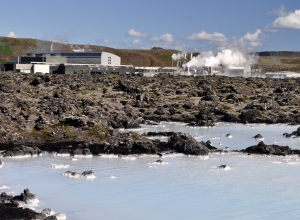 In 1031 Lapeer L.L.C. v. Rice, the defendant sought to lease a gas station to the plaintiff for a period of ten years. The defendant knew that the property was contaminated, but failed to inform the plaintiff of that fact. After the parties entered into the lease agreement, the plaintiff sought to avoid the agreement, claiming that the Defendant should have informed the plaintiff of the contamination. The Michigan Court of Appeals agreed with the plaintiff.
In 1031 Lapeer L.L.C. v. Rice, the defendant sought to lease a gas station to the plaintiff for a period of ten years. The defendant knew that the property was contaminated, but failed to inform the plaintiff of that fact. After the parties entered into the lease agreement, the plaintiff sought to avoid the agreement, claiming that the Defendant should have informed the plaintiff of the contamination. The Michigan Court of Appeals agreed with the plaintiff.
Courts try to ensure predictability and will strictly construe private agreements. However, certain contracts are void or voidable for public policy. In many real estate transactions, the cost of obtaining information regarding environmental contamination for prospective purchasers or tenants is too high, which prevents them from entering into beneficial transactions. The Michigan Legislature sought to remedy this problem by requiring certain property owners to disclose known existing environmental contamination to prospective purchasers. As a result, purchasers do not need to take risks, or waste money in order to determine whether a property is environmentally contaminated. In furtherance of this policy, the Michigan Court of Appeals held:
if a person has knowledge that his real property is a facility, he “shall not” transfer an interest in that real property unless he or she provides written notice to the transferee that the real property is a facility. Because defendant was prohibited from transferring any interest in the property at issue unless he provided plaintiffs with written notice that the property was a facility, and he did not do so, the contract was founded on an act prohibited by statute and was thus, void.
A “facility” is property that has been environmentally contaminated in excess of the clean-up standards for residential property. Specifically, under the Natural Resources and Environmental Protection Act, facility is defined as:
any area, place, or property where a hazardous substance in excess of the concentrations which satisfy the requirements of section 20120a(1)(a) or (17) or the cleanup criteria for unrestricted residential use under part 213 has been released, deposited, disposed of, or otherwise comes to be located. Facility does not include any area, place, or property at which response activities have been completed which satisfy the cleanup criteria for the residential category provided for in section 20120a(1)(a) and (17) or at which corrective action has been completed under part 213 which satisfies the cleanup criteria for unrestricted residential use.
An operator or owner of a “facility” must disclose to potential purchasers the fact that the property is a facility before entering into an agreement to transfer ownership of the property. In the event that the owner or operator does not disclose this fact, Michigan Courts will hold that the agreement is void for public policy.
This article was written by Matt Ehrlich, Associate Attorney at Demorest Law Firm.



